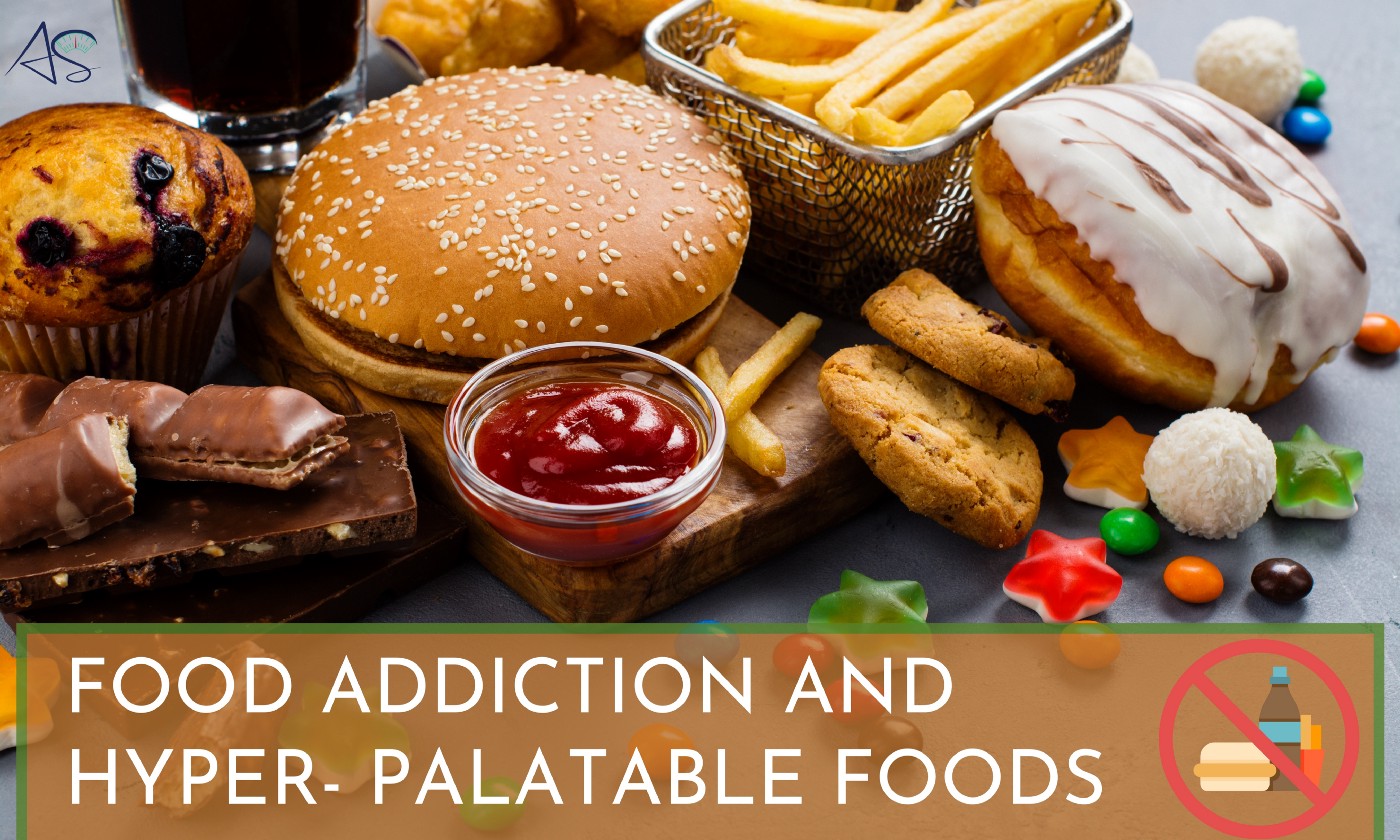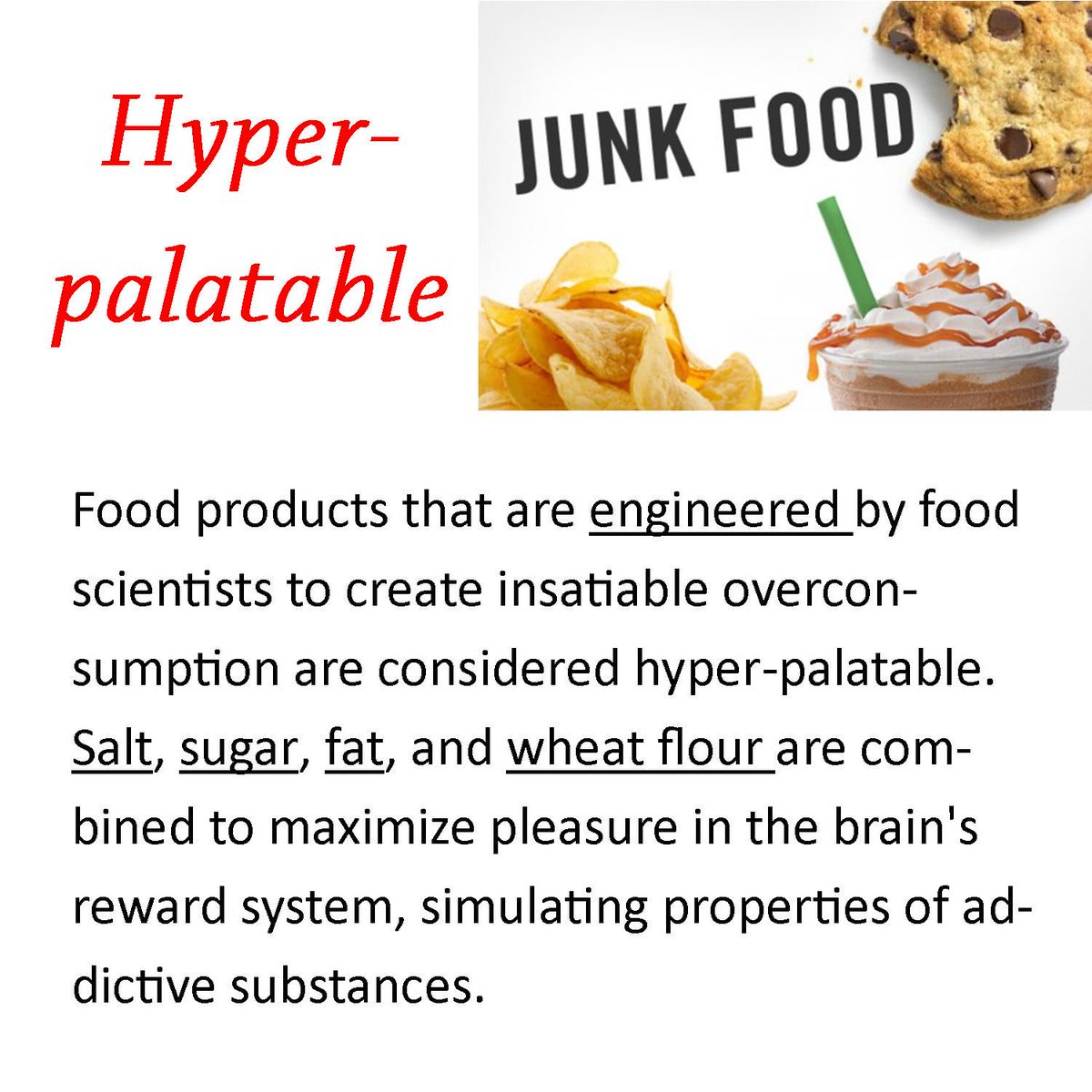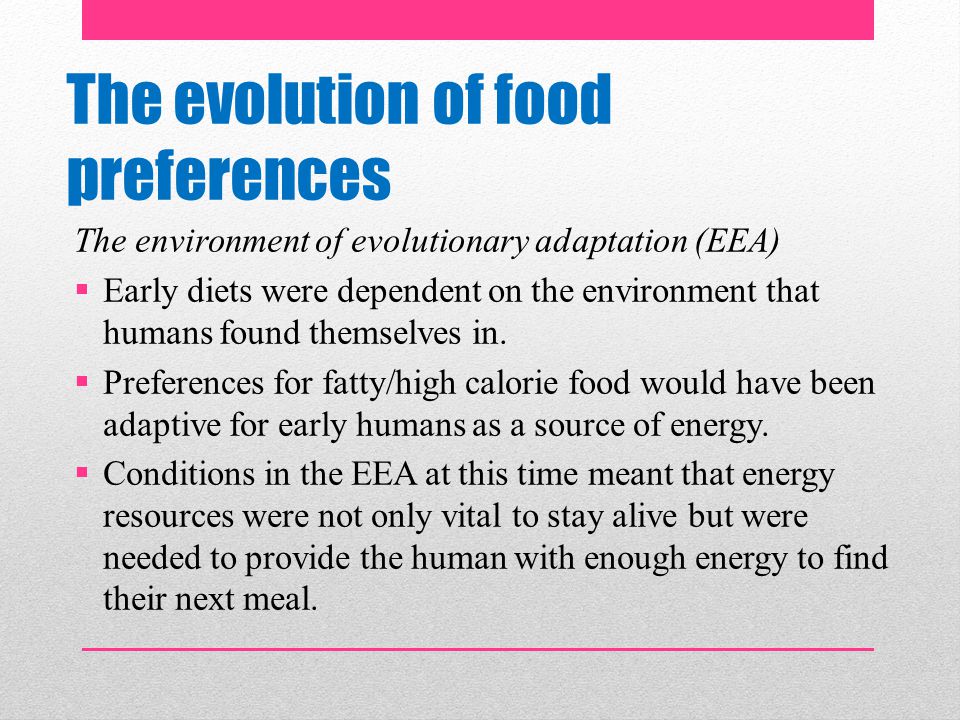
Ultra-processed foods and drinks (UPFDs) contains a combination of substances not found in the natural environment.1,2 It has been hypothesized that such foods tend to make consumers overeat, which is likely contributing to obesity and metabolic syndrome.2(518)As a means of appreciating UPFDs, hyperpalatability, and overconsumption of food, the following will explore the same in greater detail.

Ifland et al.2(518)hypothesized that processed foods possess an aggregate of substances that may be addictive: refined sugar, sweeteners, other refined carbohydrates (i.e., flours), fat, salt, and caffeine. As mentioned in the introduction, said combinations do not exist in nature and such a submission could provide a reasonable explanation for overeating processed foods. Furthermore, there has been a paralleled increase in refined carbohydrate consumption and metabolic syndrome over the last 40 years suggesting an associative/causal relationship.2(518)

Gibney et al.1(720) indicated that other researchers have proposed that UPFDs promote food addiction, and have a lower capacity to induce satiety. Furthermore, food biotechnology companies have engineered food products to skew mechanisms in the digestive system and brain that usually signal fullness and control appetite.1(720) Food processing entails mixing, heating, and extrusion that can destroy foods’ natural cell wall structures. Such breakdown causes a softening which improves the texture of foods likely contributing to increased rates of consumption and increased energy intake.1(720)Thus, manipulating texture and combining fats, salt, sugars into a single food is likely to amplify a consumer’s incentive to ingest said foods.

Overeating of hyperpalatable foods is less likely a derivation of addiction than it is a natural response to adaptive food preferences required for survival.1(720) Gibney et al.1(720) made a compelling case that searching out nutrient-dense foods is a natural evolutionary phenomenon to ensure a ready supply of electrolytes, protein, and overall energy. Seen from such a vantage point, it would be a reasonable outcome to eat UPFDs in the short-term. However, Westernized civilizations have an overabundance of such foods coupled with easy access. Such a combination sets a fertile ground for consistent overeating of such foods.
In conclusion, UPFDs are a staple food source of North America, with over 70% of daily calories deriving from the same.3Such overconsumption is likely contributing to obesity and conditions such as metabolic syndrome. Thus, understanding the natural proclivity to consume nutrient-dense foods can help provide context as to why and how UPFDs are fueling the severity and reach of diseases of modern civilization.
References
1. Gibney MJ, Forde CG, Mullally D, Gibney ER. Ultra-processed foods in human health: A critical appraisal. Am J Clin Nutr. 2017;106(3);717-724. doi:https://doi-org.libproxy.bridgeport.edu/10.3945/ajcn.117.160440.
2. Ifland JR, Preuss HG, Marcus MT, et al. Refined food addiction: A classic substance use disorder. Med Hypotheses: 2009;72:518-526. doi:10.1016/j.mehy.2008.11.035.
3. Sweazea KL. Compounding evidence implicating Western diets in the development of metabolic syndrome. Acta Physiol. 2014;211(3); 471-473. doi:10.1111/apha.12303.
-Michael McIsaac
